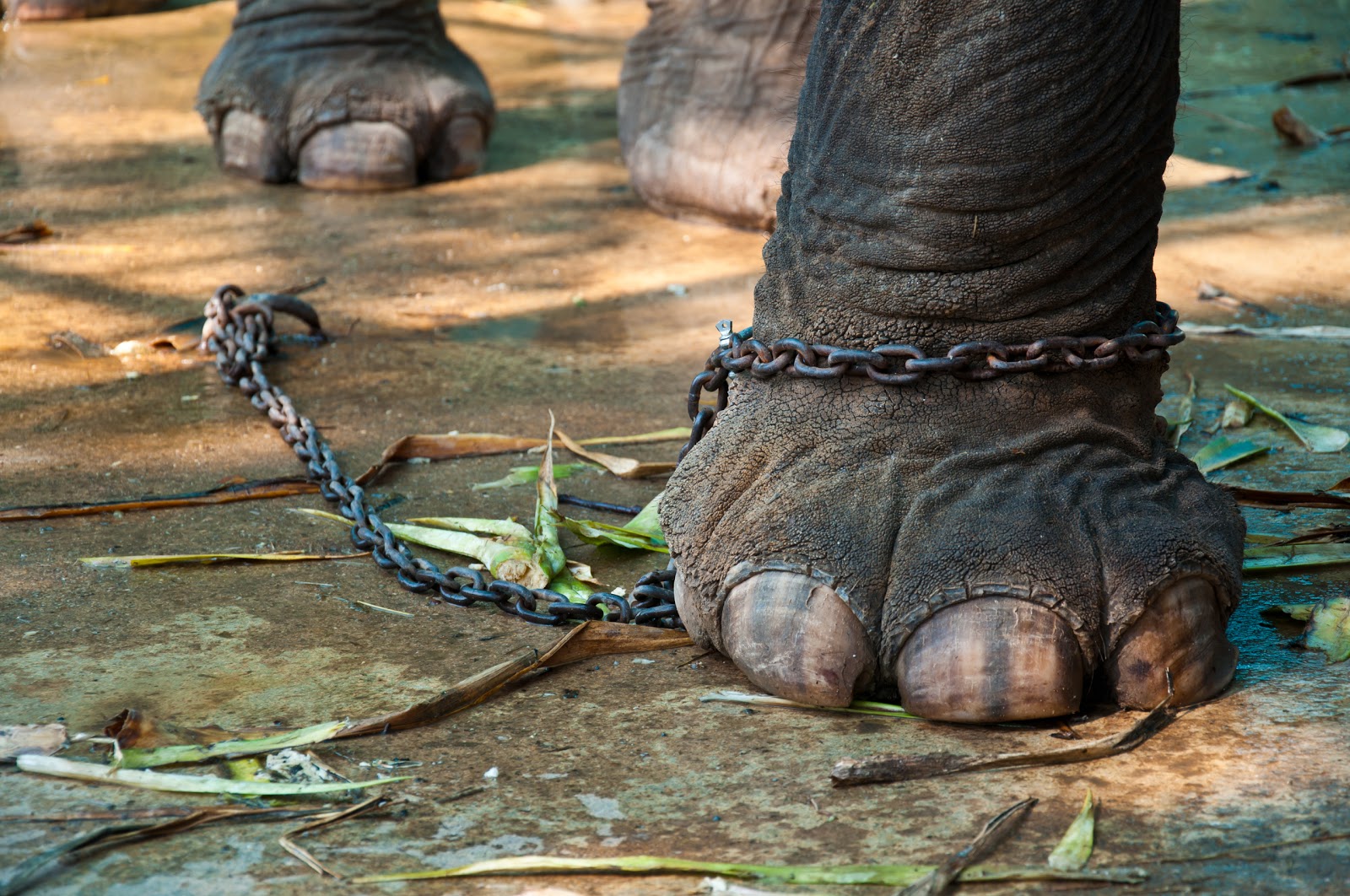“When I used to have animals they could not get to sleep at night; I knew that was not right, so I brought in acrobats and now my circus is famous for trapeze acts. Do not keep animals in cages!” Circus Owner, Malcolm Flinch.
Wild animals in captivity are denied everything; they are unable to do what is natural and important to them. They no longer search for food and water, relying on their owners to provide them with their needs, eventually leading to physical and mental health impairment. They end up with abnormal behavior, plenty of diseases, or even death. Their abnormal behavior manifests itself in stereotypic behavior; such as neck twisting, bar-biting, vomiting and regurgitating, circling and head bobbing repeatedly without obvious reasons, all of which are known as zoochosis.
We notice the effect of captivity on elephants, which are very social animals that love to live in herds, protect each other, play, and share responsibilities. Mothers, for example, take care of all young elephants and not just their own; that makes the elephant mother one of the best mothers in the animal kingdom.
You may wonder how a huge animal as an elephant is kept in the zoo with just a small chain around its ankle. When the elephant is young, the owner chains its ankle to a large tree; as the elephant is so young and small, it keeps trying to break free, but surely it cannot because of its very small body compared to the tree. The elephant will keep trying to get away until it gives up and believes that any chain around its ankle will prevent it from running away, even after it grows up and becomes much larger than its owner.
At some circuses, baby elephants are taken from their mothers and are punished until they become obedient; the trainer uses many violent methods and tools to train them for the circus show. One of the violent methods is digging the bull hook in the animal’s sensitive flesh; another is starvation until the trick is performed. Finally, electric pods are used; they cause pain without significant injury. The animal learns that not performing these meaningless tricks will result in a painful shock. On the other hand, taking elephants from their mothers has a devastating impact on them; the mother feels depressed and disappointed watching her babies taken away while she cannot do anything to bring them back.

Despite training, male elephants (bulls) are aggressive by nature and can be extremely dangerous to humans and other animals, even if they are domesticated. This case is periodic and is termed “musth”, which is a recurring change in elephant’s behavior that may extend from weeks to months due to the secretion of large amount of testosterone. In this period, the elephant cannot handle any noise or sudden movement around it; it becomes very nervous and will not react to its keeper’s commands and may even attack him. That is one of the main reasons why male elephants should be kept in special stables without direct contact with the keeper.
Not only male elephants can turn aggressive, females also can too; we cannot forget the famous execution of the elephant, Topsy, which became unmanageable and killed her trainer and two others. The story began when Topsy killed her trainer after he burnt the tip of her trunk with a lit cigar. She was electrocuted at Luna Park in New York City in front of a crowd of guests and reporters. No one can deny that she was a victim of bad treatment to become well-trained and that she suffered a lot when she was driven away from her herd and natural habitat to be held in captivity.
Captivity may also cause many diseases for both animals and owners due to hygiene risk. Similarly, wild and domesticated chicken or birds become stressed in cages and may damage their wings as they do not have the opportunity to stretch their wings and fly. Moreover, if we compare their production to free-range ones, we notice the greater production efficiency at lower costs; many free-range farmers believe their animals are about 20% less sick than caged ones.
 In brief, before captivating any animal, think more about them and their rights; you will recognize that wild animals are meant to stay in wild.
In brief, before captivating any animal, think more about them and their rights; you will recognize that wild animals are meant to stay in wild.
References
bornfree.org.uk
en.upali.ch
onegreenplanet.org
peta.org
petakids.com
smithsonianmag.com
thebell.global2.vic.edu.au
*This article was published in SCIplanet printed magazine, Autumn 2017 Issue.